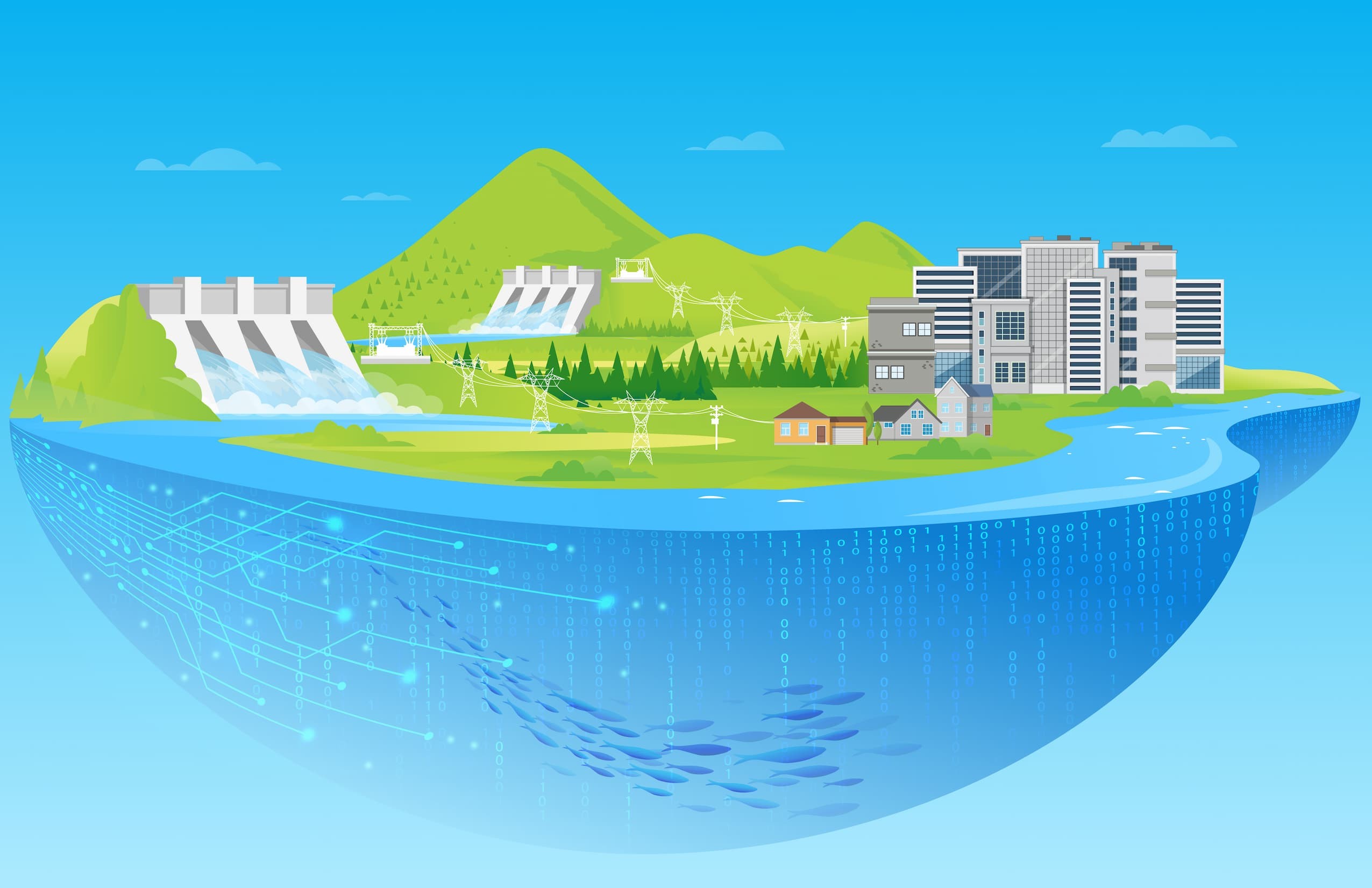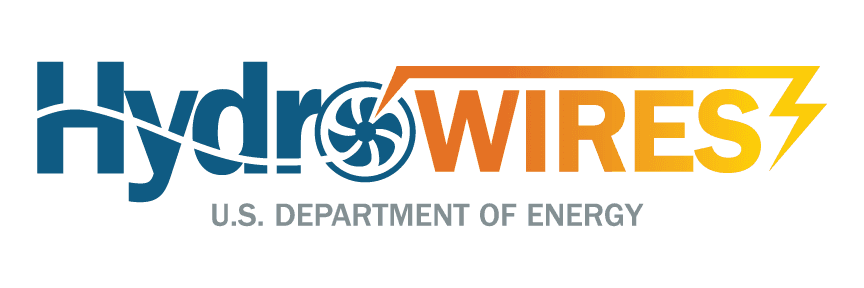American-Made Challenges: Hydropower Operations Optimization Prize

Help solve near-term challenges in the clean energy transition by improving the grid's reliability and resiliency! With optimized operations, hydropower can complement variable renewable energy resources, such as wind and solar, to help power the grid.
H2Os Prize Overview
The U.S. Department of Energy's (DOE) Water Power Technologies Office (WPTO) launched the Hydropower Operations Optimization (H2Os) Prize to encourage the development of new solutions that can help advance hydropower's contribution to the grid. Hydropower provides beneficial operational flexibility by storing and timing its release to meet the needs of the grid. This competition challenges innovators to use modeling, data analytics, and machine learning to schedule hydropower operations in coordination with existing grid scheduling practices while respecting water management operations and constraints.
The H2Os prize originally consisted of three phases with increasing problem complexity in each phase; WPTO is now expanding the competition to include a fourth phase to allow competitors to compete, present, and network in person to advance their solutions for optimizing the value of hydropower in the grid.
As in the first three phases of the H2Os prize, Phase 4 asks competitors to act as a hydropower manager responsible for a water system consisting of a river network connecting one or more hydropower-producing reservoirs. In this final phase of the competition, competitors will create a reservoir release schedule for all reservoirs in a given system. Successful schedules will avoid violating water system constraints and will endeavor to generate power when it is most economically and environmentally beneficial.
This final phase will take place in person at the Clean Currents Conference in Cincinnati, Ohio, October 10-13, 2023. The total prize pool for Phase 4 is valued at $85,000.
Join the ChallengePrize Background
As the U.S. grid evolves and integrates more variable renewable energy resources like wind and solar, hydropower management can be adapted to support changing grid conditions and enhance the reliability and resiliency of the grid. By increasing hydropower's ability to operate flexibly and integrate variable energy resources, solutions funded by this competition support the administration's goal of a decarbonized power sector by 2035.
Hydropower technologies are versatile and can be dispatched quickly. They can operate reliably and sustainably, but grid operators often limit existing hydropower resources based on conservative estimates of hydropower availability and water management practices.
As part of WPTO's Hydropower and Water Innovation for a Resilient Electricity System (HydroWIRES) Initiative, the H2Os Prize encourages competitors to leverage advanced modeling, data analytics, and machine learning capabilities to develop solutions that can help hydropower systems coordinate with existing grid scheduling practices and offer the full set of hydropower resource capabilities.
Through the competition, WPTO seeks solutions to address key hydropower technology development goals:
- Hydropower Management Performance: Hydropower scheduling solutions that respect the water system's physical and operational constraints.
- Hydropower Generation Benefits: Economic and environmental benefits resulting from hydropower generation based on feasible hydropower output and electricity market energy prices.
- Novel, Scalable, and Broadly Applicable Hydropower: Flexible solutions that apply to a variety of facilities within a range of modeling and institutional workflows.
Prize Structure
The first three phases of the prizes are complete. Registration for Phase 4 opens in July 2023 and consists of an in-person competition at the National Hydropower Association's Clean Currents Conference on October 10-13, 2023. Only the first 10 registrants will be allowed to participate at the in-person competition. Competitors must have previously registered for any one of the first three phases to be eligible and meet all eligibility requirements outlined in Section 5.7 in the rules document. Upon registration, teams must enter their Topcoder handle to prove their prior registration. As a part of the registration process, competitors will be required to submit a 150-word abstract outlining their proposed solution.
Phase 1
- Prize pool of $10,000
- Grand prize of $3,000
- $1,000 prizes for up to seven other winners
Phase 2
- Prize pool of $15,000
- Grand prize of $7,500
- $1,500 prizes for up to five other winners
Phase 3
- Prize pool of $50,000
- Grand prize of $30,000
- $10,000 prizes for second- and third-place winners
Phase 4
- Prize pool up to $85,000
- One grand prize of $25,000 in cash and prizes
- $20,000 for second place
- $15,000 for third place
- $10,000 for fourth place
- $5,000 for up to three other winners
Important Dates
Phase 1
Open:
April 6, 2022
Close:
May 20, 2022
Winner Announcement:
July 7, 2022
Phase 2
Open:
July 7, 2022
Close:
August 19, 2022
Winner Announcement:
September 29, 2022
Phase 3
Open:
September 29, 2022
Close:
November 11, 2022
Winner Announcement:
January 10, 2023
Phase 4
Registration Open:
July 19, 2023
Registration Close:
August 16, 2023
In-Person Competition (Clean Currents Conference, Cincinnati, Ohio):
October 11, 2023
Winner Announcement:
October 12, 2023
All dates are subject to change including contest openings, deadlines, and announcements.
Sign up for updates for the Hydropower Operations Optimization (H2Os) Prize here.
Who Can Participate?
The prize aims to attract and support dedicated, cross-disciplinary teams of highly capable individuals interested in contributing to solutions that will help improve the performance of hydropower system operations and spur the clean energy transition.
Solutions that help shape the future
Are you an innovator or an experienced professional interested in putting your hydropower, machine learning, data science, or optimization expertise to work? We're looking for diverse, multidisciplinary teams to help solve some of the most near-term challenges in the clean energy transition by improving the performance of hydropower system operations.
Join the Challenge
